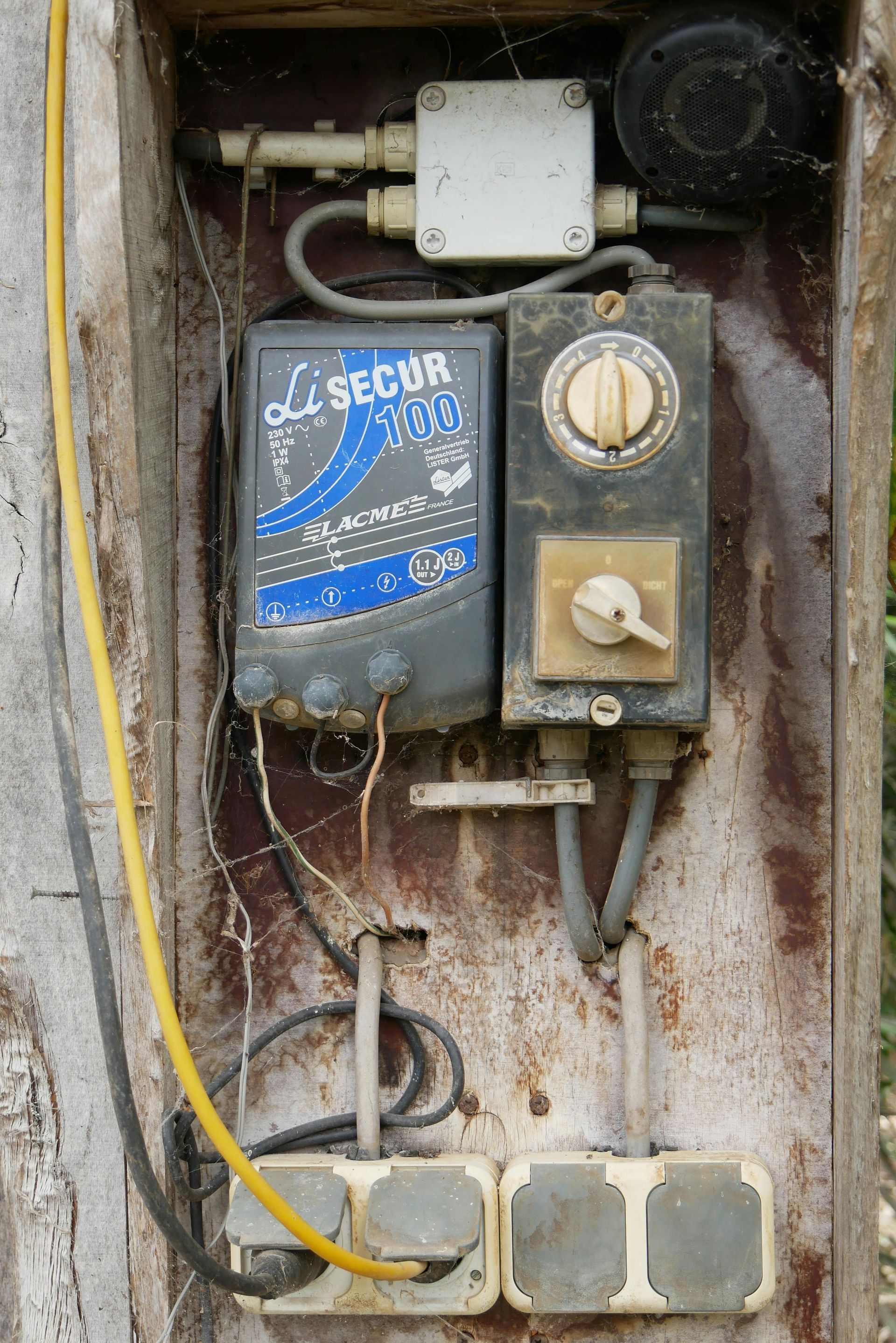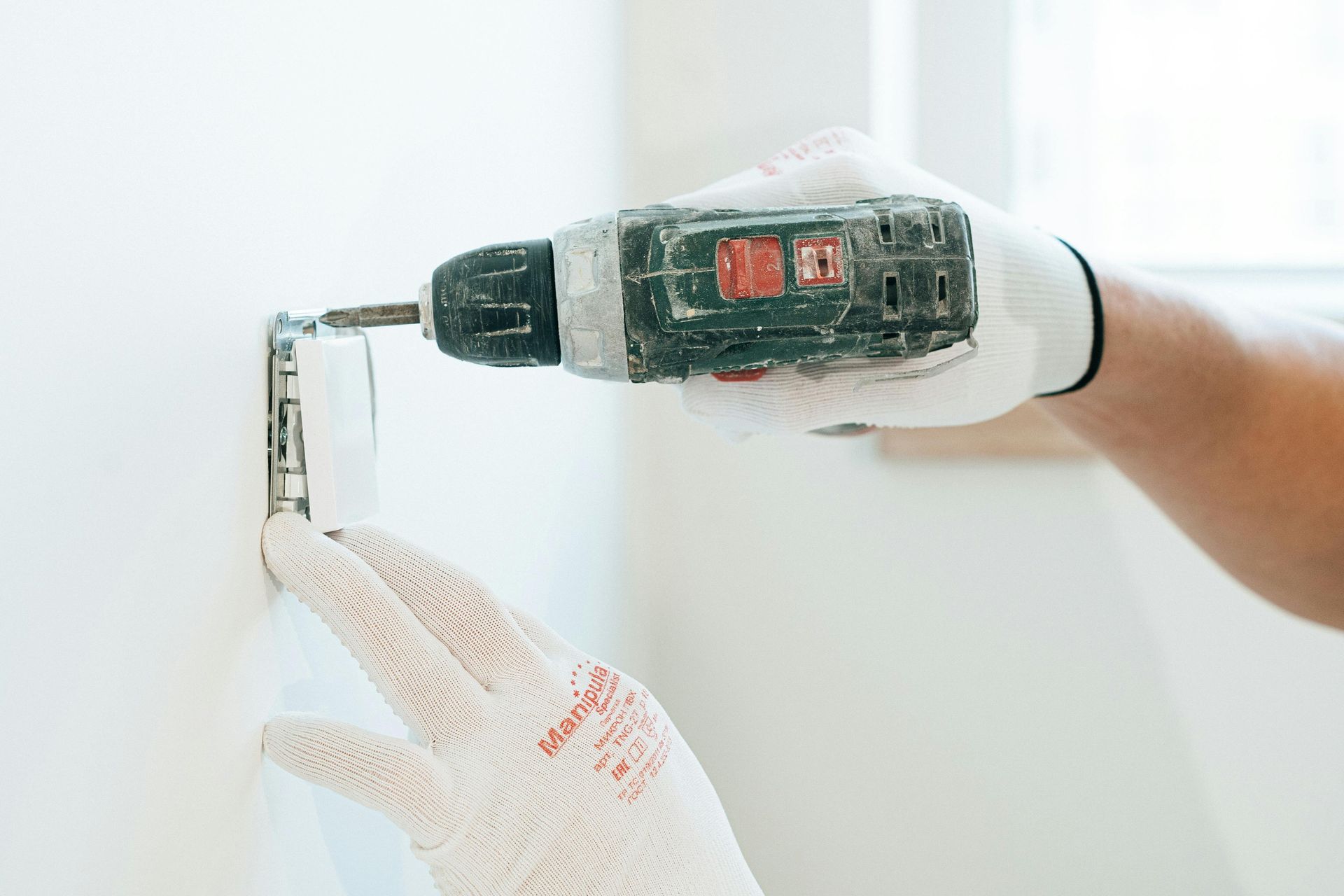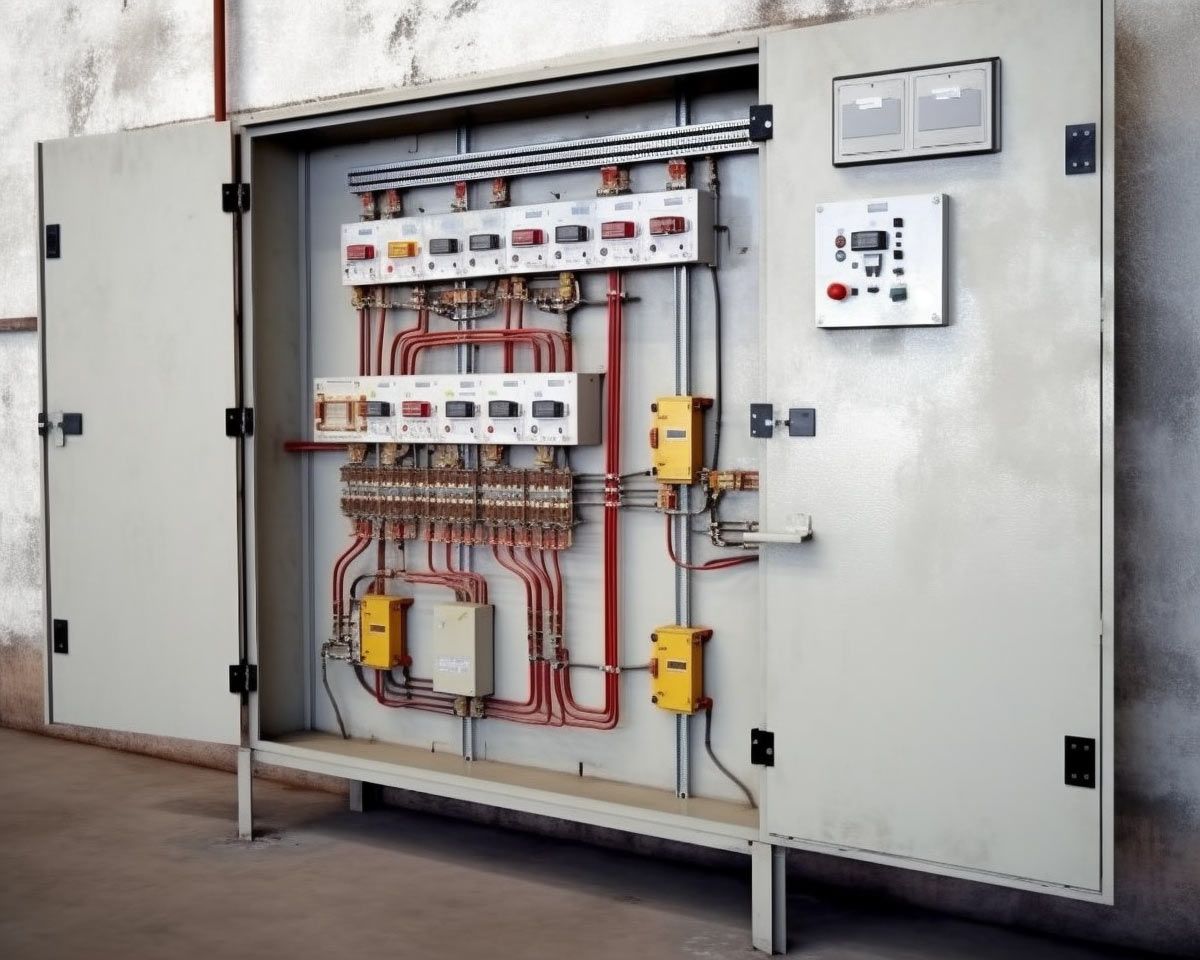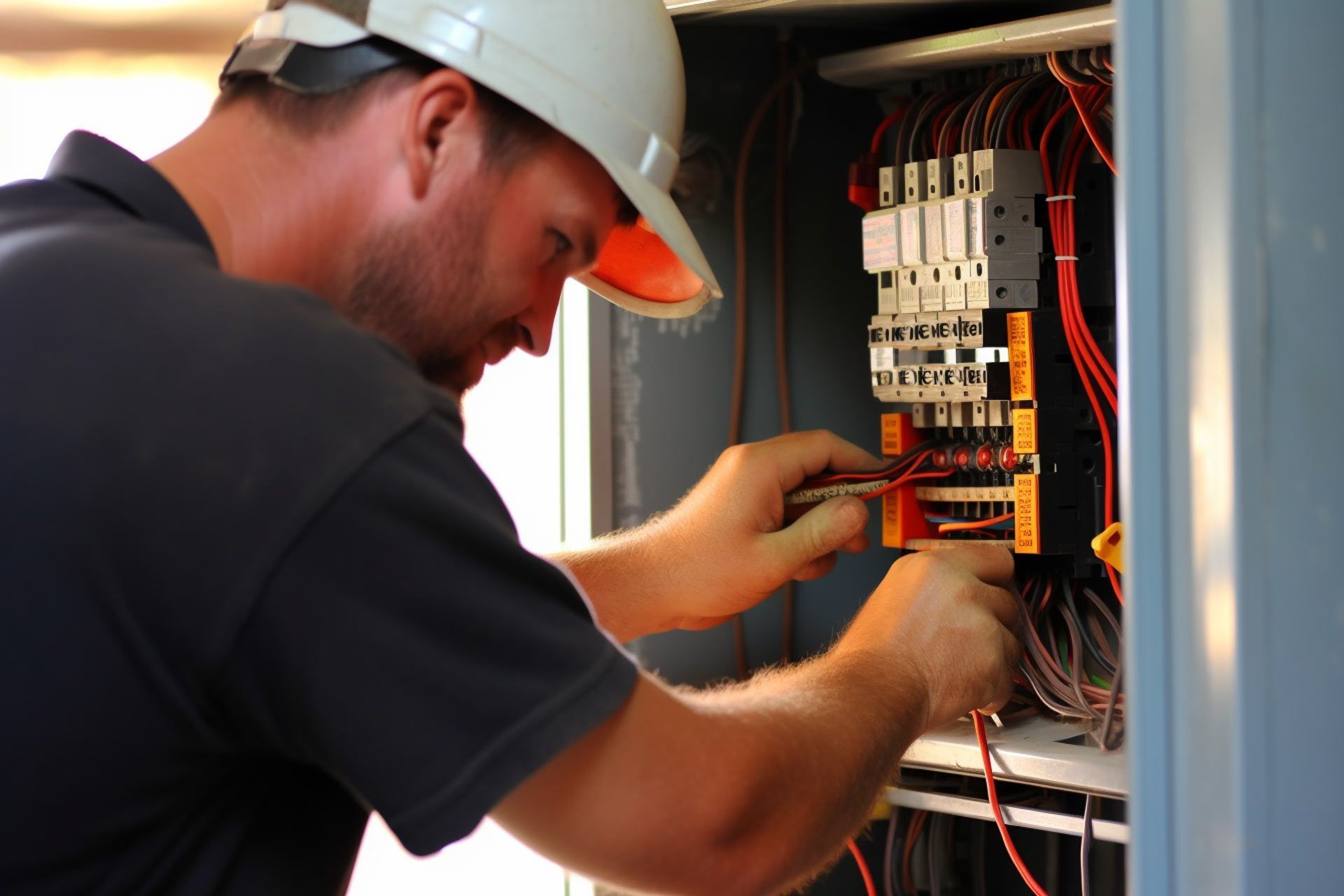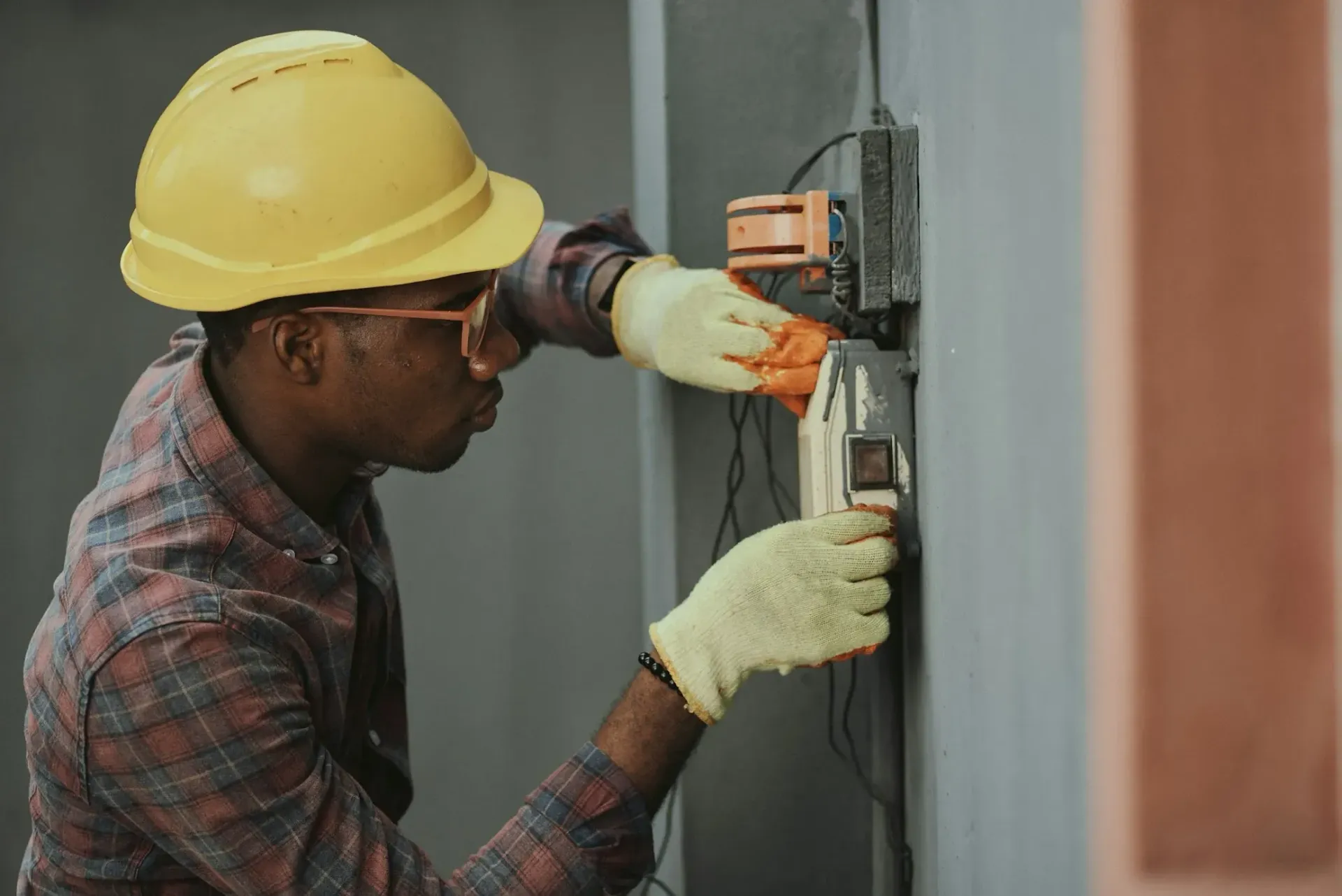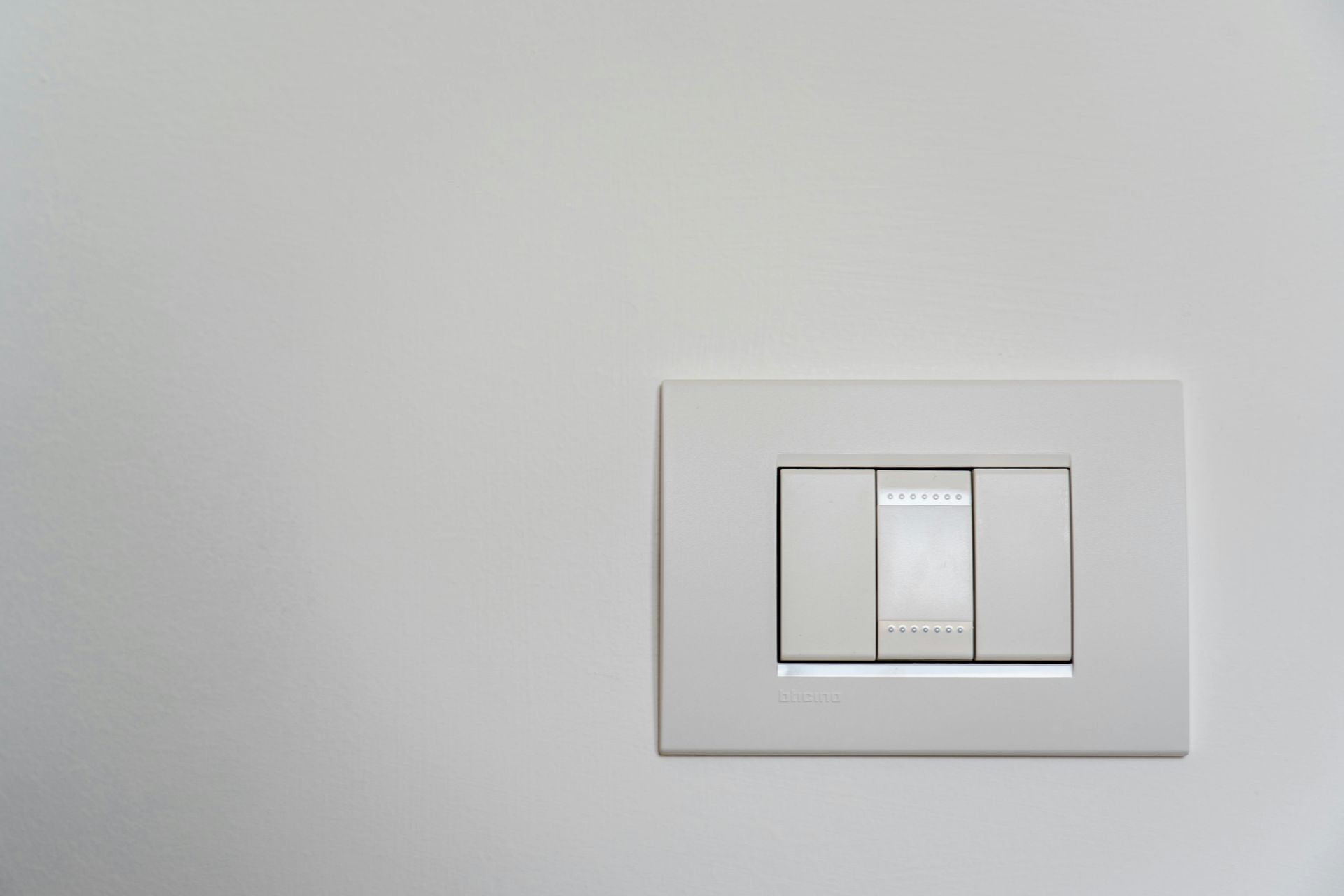10 Signs You Need a Professional Electrician
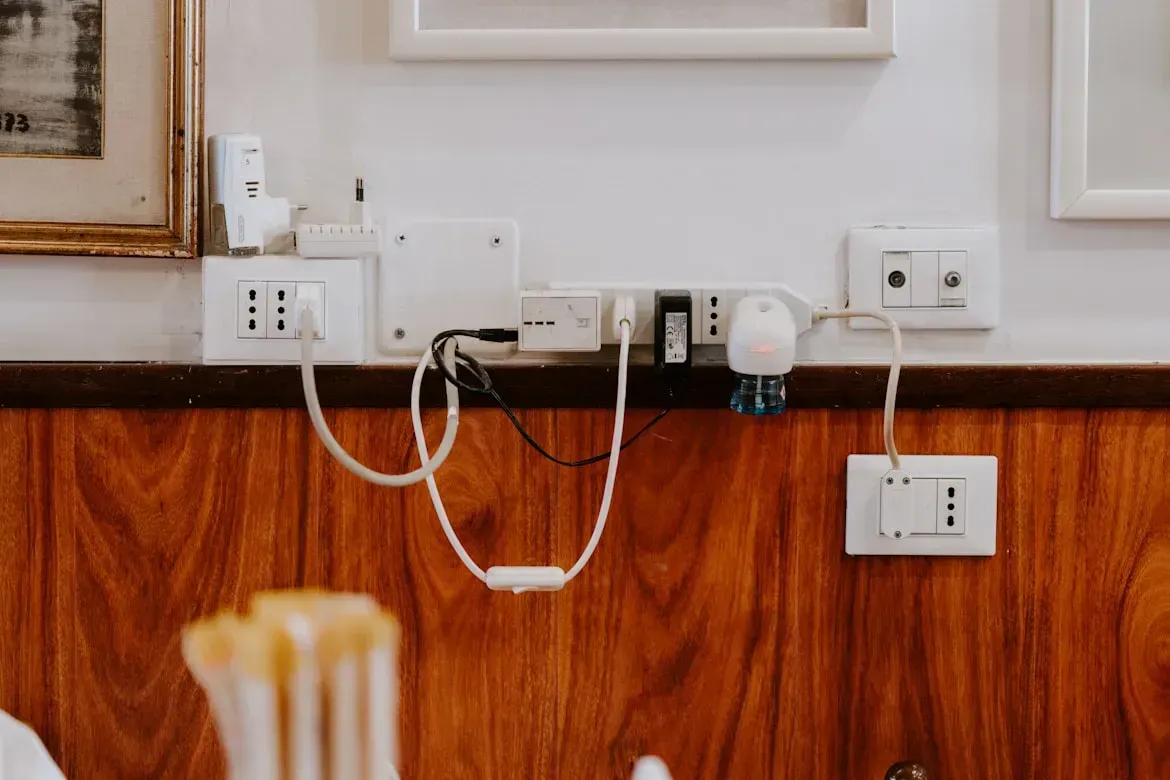
Electrical safety is not just a matter of precaution; it's a crucial aspect of maintaining a secure home environment. Every year, thousands of incidents are reported due to electrical failures, many of which could have been prevented with timely intervention. Recognizing the signs that demand a professional electrician's expertise is not just about fixing a problem; it's about ensuring the safety and well-being of your home and loved ones.
In this guide, we'll dive into the critical signs indicating it's time to call in the experts. From the subtle hints like flickering lights to more alarming cues such as electrical shocks, understanding these signs can be your first line of defense against potential hazards. Stay with us as we explore the essential markers that signal the need for a professional electrician's attention, ensuring your home remains a safe haven.
Electrical Shocks
Encountering a shock when touching an appliance or outlet isn't just uncomfortable—it's a clear signal something is wrong. This usually means electricity is finding an unintended path due to issues like faulty wiring or malfunctioning appliances.
Why It's Urgent
Ignoring electrical shocks can lead to serious consequences, including the risk of electrical fires. These shocks often indicate underlying problems such as ground faults, which, if left unaddressed, could compromise the safety of your entire household.
When to Act
The moment you experience an electrical shock, it's critical to stop using the implicated appliance or outlet. The next step? Call a professional electrician. This isn't merely about troubleshooting an appliance—it's about ensuring your home's electrical system is safe and up to standard.
Buzzing Sounds or Burning Odors
Unusual noises or smells coming from your outlets or electrical panel shouldn't be overlooked. A buzzing sound can indicate loose connections or faulty wiring, while a burning odor may signify overheating components, both of which are precursors to potential electrical fires.
Why It's Urgent
These signs are alarming because they directly point to immediate fire hazards. Electrical systems are designed to operate quietly and without emitting odors. When this isn't the case, it's often a sign of excessive heat or electrical arcing, both of which can cause fires if not promptly addressed.
When to Act
Upon noticing any buzzing sounds or burning smells from your electrical system, it's crucial to act swiftly. Turn off the power to the affected area if possible and contact a professional electrician immediately. These are not issues that can wait, as they pose immediate risks to your property and safety.
Circuit Breakers Frequently Tripping
Regular tripping of circuit breakers is more than a nuisance—it's a sign that your electrical system is under stress. This could be due to overloaded circuits, a short circuit, or faulty appliances, all of which demand attention.
Why It's Urgent
Frequent tripping indicates that your electrical system is working overtime to prevent overheating or fires, signaling a potentially dangerous condition. It's a built-in safety feature that's telling you something is wrong.
When to Act
If your circuit breakers are tripping more often than seems normal, it's time for professional evaluation. An electrician can diagnose the cause—whether it’s an overload or a fault—and provide a solution to keep your electrical system running safely and efficiently.
Flickering or Dimming Lights
If your lights flicker or dim unexpectedly, especially when using appliances, it might not just be a bulb issue. These fluctuations can indicate a more significant problem with your home's electrical system, such as voltage variations or overloaded circuits.
Why It's Urgent
Flickering or dimming lights can be symptomatic of inadequate wiring or an overtaxed electrical system, both of which can pose serious risks. Inadequate wiring can lead to overheating, potentially sparking electrical fires, while overloaded circuits might fail, leaving you without power or worse.
When to Act
Consistent or widespread flickering across multiple rooms or in response to appliance use should be addressed immediately. Contact a professional electrician to inspect your electrical system. They can identify the cause of the flickering lights and recommend the necessary repairs or upgrades to ensure your home's electrical safety.
Outdated Electrical System
Homes with electrical systems that haven't been updated in decades are at a higher risk for issues. Signs of an outdated system include a lack of GFCI (Ground Fault Circuit Interrupter) outlets in wet areas, fuse boxes instead of modern circuit breakers, and two-prong outlets instead of three-prong ones.
Why It's Urgent
Outdated electrical systems may not meet current safety standards, increasing the risk of electrical shocks, short circuits, and fires. These systems were not designed to handle the electrical load of modern appliances and electronics, leading to potential overloads and failures.
When to Act
If your home still operates with features characteristic of an older electrical system, it's crucial to consult a professional electrician. An upgrade or retrofit can bring your home up to current safety standards, reducing the risk of electrical hazards and improving functionality for modern living.
Warm or Hot Outlets/Switches
Outlets or switches that feel warm to the touch are not normal and signal an issue. This warmth can indicate that the electrical load on the circuit is too high, or there might be a wiring issue, both of which are serious concerns.
Why It's Urgent
A warm or hot outlet could lead to overheating, which in turn increases the risk of electrical fires. It’s a sign that the electrical demand might be exceeding what your system can safely handle, or there could be a dangerous fault within the wiring.
When to Act
Immediately stop using any outlet or switch that feels warm or hot and do not use it until it has been checked by a professional electrician. This is not a DIY fix scenario; professional diagnosis and repair are essential to ensure your home’s electrical safety.
Overloaded Power Outlets
Using multiple extension cords or plug adapters can lead to outlets being overloaded, a common issue in many homes. This not only strains the electrical system but can also lead to damage or failure of the outlet itself.
Why It's Urgent
Overloading outlets increases the risk of electrical fires and circuit damage. Each outlet is designed to handle a certain amount of electrical load, and exceeding this can cause overheating and potentially ignite a fire.
When to Act
If you find yourself relying heavily on extension cords or noticing that outlets are crowded with adapters, it's time to reassess your home's electrical setup. Contact a professional electrician to discuss the installation of additional outlets or to upgrade your electrical system to accommodate your needs safely.
Persistent Electrical Surges
Electrical surges can happen for various reasons, including lightning strikes, damaged power lines, or faulty appliances. However, if surges occur frequently, it’s a sign there’s a deeper issue within your home's electrical system.
Why It's Urgent
Regular surges can damage electronics, reducing their lifespan significantly. More critically, they indicate instability in your home’s electrical infrastructure, which could lead to more severe problems like fires or system failures.
When to Act
If you're experiencing more surges than usual, it’s crucial to act swiftly. Disconnect and evaluate your appliances to rule them out as the cause. Next, bring in a professional electrician to inspect your electrical system. They can identify and rectify the source of the surges, safeguarding your home and appliances.
Lights Too Bright or Too Dim
Noticeable inconsistencies in lighting, such as lights being unusually bright or dim, can indicate an issue with your home’s electrical system. This might stem from problems like a bad main neutral connection or issues with your home's voltage.
Why It's Urgent
These lighting issues can signify more serious electrical problems that could not only damage your lighting fixtures but also pose risks to your appliances and overall electrical safety. Ignoring these signs could lead to costly repairs and potential safety hazards.
When to Act
If adjusting the brightness settings (if available) doesn't fix the issue, or if the problem persists across multiple fixtures, it’s time for professional intervention. An electrician can diagnose whether the issue is with the fixtures themselves, a circuit problem, or something more complex within your electrical system.
Conclusion
Electrical safety in the home is paramount. Recognizing the signs that you need a professional electrician can help prevent accidents, fires, and costly damages. From flickering lights to frequent circuit breaker trips, understanding these warnings ensures your home remains safe and well-maintained.
If you're experiencing any of the signs discussed, don't hesitate to consult with a professional. Electrical issues are not to be taken lightly, and a licensed electrician can provide the expertise and solutions needed to keep your home safe.
Remember, when it comes to electrical work, it’s always best to err on the side of caution and call in the professionals. Your home and family’s safety is worth it.
Serving a wide range of areas including Lehi, American Fork, Pleasant Grove, Sandy, and Draper, Bar H Bar is your go-to for reliable and professional electrical service. Their commitment to quality and customer satisfaction makes them stand out in the field.
Whether you're looking to upgrade your electrical panels, install efficient interior lighting, or add convenience with new outlets and switches, their expert team has you covered.
They also specialize in cutting-edge solutions like electric car chargers and spa hookups, ensuring your home is both comfortable and technologically advanced.
Frequently Asked Questions
Can I perform minor electrical repairs myself?
While it might be tempting to tackle minor repairs, electrical work should always be handled by a professional. Even small tasks can pose significant risks if not done correctly. Professional electricians have the training, experience, and tools to safely perform electrical repairs, ensuring your home's electrical system is up to code.
How often should my electrical system be inspected?
It's recommended to have your home's electrical system inspected at least every 10 years for homes over 25 years old, or if you're purchasing a new home, planning renovations, or adding new appliances. Regular inspections can identify potential issues before they become serious problems.
What's the difference between a licensed and a certified electrician?
A licensed electrician is authorized by local or state regulatory bodies to perform electrical work, indicating they have met certain training and experience requirements. A certified electrician has gone a step further, passing rigorous exams that test their knowledge and skills in specific areas of electrical work.
Are power surges dangerous? How do I protect my home?
Yes, power surges can be dangerous, potentially damaging electronics and appliances or even sparking electrical fires. To protect your home, consider installing surge protectors, surge-protected power strips, and a whole-home surge protection system, which can help mitigate the risk of damage from surges.
What should I do if my house has aluminum wiring?
Homes with aluminum wiring should be inspected by a professional electrician. Aluminum wiring can pose a fire risk if not properly maintained or updated. An electrician might recommend pigtailing copper wire to the ends of aluminum wire, using special connectors to reduce the risk, or replacing aluminum wiring with copper wiring.
